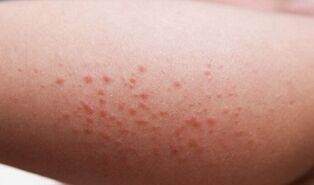
It is often difficult to determine the presence of parasites in the human body. It is almost impossible to do it yourself. Because in the first stage, you may not understand that there is something wrong with your health. And at a later stage, when the actual health problem begins, the symptoms are usually associated with something else and are mostly treated separately, without a deep understanding of the problem.
There is nothing more disgusting than thinking about the worms that live in your stomach, but there are those who want to swallow parasites voluntarily to lose weight or "get rid of toxins"
After reading this article, you can study the problem in more detail and understand in time how to determine the presence of parasites in the body, which is to restore a complete picture of your body.
What parasites can be in our body
Basically, organisms that parasitize our organs are divided into two types: endoparasites and ectoparasites.
Endoparasitic parasites of our body and other tall organisms, they live in it and eat the cells of the organism. Endoparasites are all worms, lamblia, toxoplasma, echinococcus. It can be a fungus or a bacterium or a virus.
The second type of bacteria is ectoparasites. They live on the surface of the body, that is, in our nature, in our body. Their food is our tissue cells, such as our skin, as well as our blood. More specifically, these are parasites such as rotten fleas, fleas, lice, fleas. Also mosquitoes and flies are referred to as ectoparasites.
How to determine the presence of parasites in the body with symptoms
How to find out if there are parasites in the body, perhaps in terms of appearance and internal conditions.
There are many symptoms associated with parasites. Since these symptoms are quite popular, they are also a symptom of a common disease, people usually do not suspect its presence in the body. Therefore, the symptoms are treated separately, and in turn, they reappear after treatment.
You can often get a doctor's recommendation to start treatment when some symptoms from the following group appear with prophylactic drugs against parasites. In any case, it will help you to be healthier. Below we will look at a complete list of symptoms, divided into several groups, and you will learn how to determine if there are parasites in your body.
Symptoms associated with the gastrointestinal tract

- constipation.Worms can be quite large. Thus, they can block part of the digestive tract. Some parasites can close the intestinal tract and bile ducts completely. This usually affects your stool. It can be sparse and difficult;
- diarrhea.It is generally believed that diarrhea is a well-known reaction to poor nutrition. But this is not always the case. Many bacteria produce hormones that affect feces in this way;
- gas and bloating.Often, parasites are found in the small intestine, and this usually leads to bloating, followed by excess gas. If bloating is almost constant, then this is an opportunity to think about the possible presence of parasites in the body;
- intestinal irritation syndrome.Because parasites live by consuming nutrients from our body, for example, fats, the intestinal wall is very often irritated. And this is followed by a number of symptoms and a decrease in nutrient absorption. So the substance is not absorbed, but immediately enters the large intestine, leading to problems in the gastrointestinal tract.
Almost every parasitic attack in a blood test will increase eosinophil cells.
Joint and muscle pain
Parasites have certain abilities. They can live, move through the body, have the task of settling in the simplest place in the body. One of these places is joint and muscle fluid. The symptoms are painful, usually similar to the symptoms of arthritis, but this is not always the case.
Parasites cause major damage to muscle tissue or immunity. Thus, their presence in the body develops into muscle aches.
External manifestations of parasites

- allergies.Parasites always release toxins. Toxins do great damage to the body, as large amounts of special protective cells are released. They adversely affect the body, and this causes the appearance of allergic reactions;
- problem skin.Parasites can cause not only allergies, but also various skin boils, acne or pimples and other external reactions. So think again if you have persistent skin problems. This will help establish the presence of worms;
- anemia.Many bacteria "steal" nutrients and this causes blood loss. From this occurs iron deficiency;
- weight problems.It is generally accepted that worms can only lose weight, but this is a big mistake, as parasites can gain weight. With large weight loss, the reason is because worms absorb our food faster than we do. Weight loss symptoms are a proven way to find out if you have worms. But obesity is more complicated. It appears because of the low sugar levels in our blood. As a result, uncontrollable appetite appears, as this has a negative effect on metabolism. Also, obesity can be a defensive reaction of the body.
For intestinal parasites, the main symptoms are fever, nausea, vomiting, loose stools and itching on the skin /
Symptoms caused by the nervous system
- Nervousness.Appears due to irritation by parasites of vital organs, albeit small in nature. However, the person may not be aware of other symptoms. Thus, you can identify the life of parasitic organisms based on the state of your nervous system.
- Sleep disorders.Often a person associates a persistent awakening with a disease of the nervous system, but more often elsewhere. At night, the liver begins to function, and when releasing toxic substances, our body is very active. Because of this, there may be waking up during sleep.
- Tooth decay during sleep.Certain types of bacteria can irritate the body to the point of possible bruising. Moreover, this is a very common symptom. Thanks to him, you can easily learn how to recognize the presence of foreign objects in the organs of adults or, more often, children.
- Chronic fatigue syndrome.These symptoms, which in some cases are individual illnesses, include many others. These are apathy, depression, fatigue, decreased attention. This is due to the fact that parasites consume large amounts of nutrients and nutrients. And, of course, the body stopped grabbing it.

If the brain is affected by cysticercosis, then anxiety, headache, seizures, pseudoepileptic seizures will be characteristic.
Other symptoms
- Immune disorders.Persistent cold, runny nose, cough can be the result of a weakened immune system. And so on, getting weaker due to lack of nutrients.
- Oncological diseases.One of the most common causes of organ failure and cancer is parasitic organisms. They can sit in your organs so often leading to long-term consequences - serious illness.
- Inflammation of the airways.It has been said about the movement of worms throughout the body. Another place that is most comfortable is the air ducts. After that, there is a cough, phlegm and runny nose.
Conclusion
This is a true parasitic symptom. Worms can live in your body for a very long time.
It is very important to know in a timely manner how to check their presence and prevent possible consequences.
















































